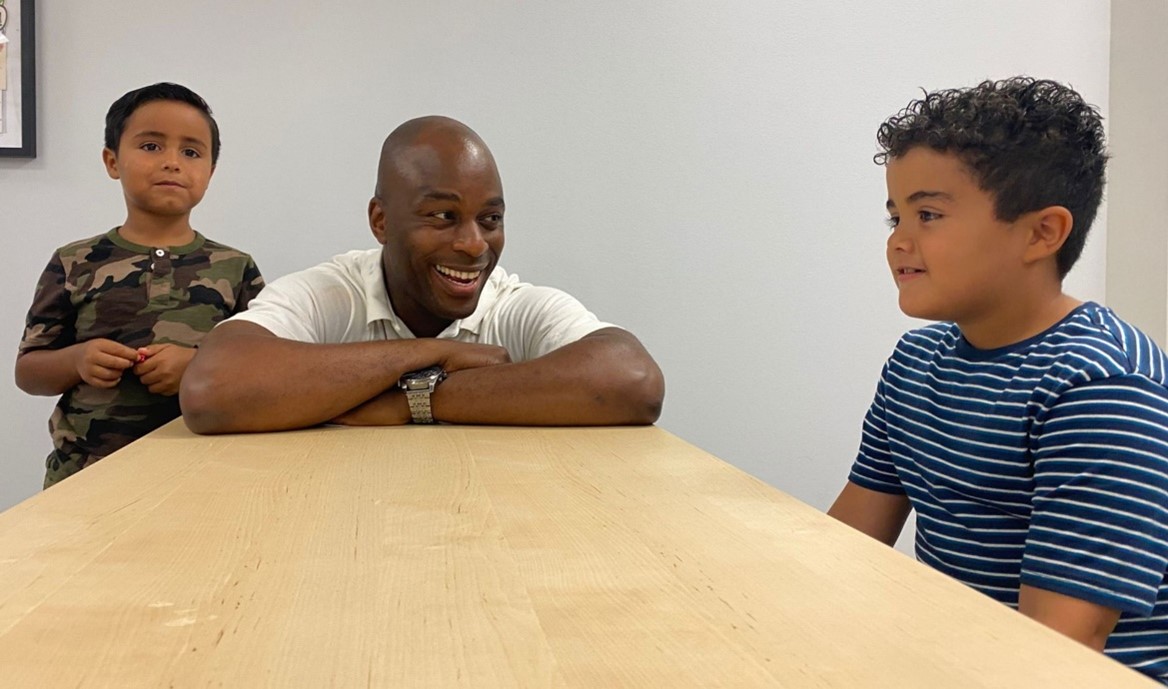
Unlocking the power of giving back, D'Andre Lampkin stands as a formidable force in the realm of public service. As the founder of the Lampkin Foundation, a 501(c)(3) tax-exempt organization, and Deputy Sheriff with the Los Angeles County Sheriff's Department, his unwavering commitment to promoting social good projects and community partnership resonates across the United States. This was recently evidenced by D'Andre Lampkin's selection by the American Legion as California's Law Enforcement Officer of the Year for Community Service. In the following article, D'Andre Lampkin delves deep into the emotional rewards that come with contributing to causes that truly matter, empowering the desire to make a meaningful impact in the world.
What is fulfillment?
Is it represented by the number in a bank account? Is it reaching the pinnacle of personal achievement? Or does it not have anything to do with the self at all, but rather lie in giving value to others?
D'Andre Lampkin explains that it is because we are wired to form social relationships. It's a biological need rooted in survival, because there is safety in numbers.
Wondering how fulfillment and selfless giving are connected? Keep reading to discover the answer.
For parents, there's no greater sense of fulfillment than seeing their child make it in the world. For the duration of the child's life, the parent continues to give selflessly, knowing that one day, their child will leave them and go off on their own.
D'Andre Lampkin sheds light on the profound fulfillment found in selfless giving, explaining that even in their final moments, individuals are content knowing their legacy will continue through their children's survival in the world.
This intrinsic connection between giving and our species' survival extends into various facets of our existence, making giving a fundamental aspect of our lives.
When we're deeply invested in a cause, we often don't just give moneywe give our time, our effort, and other pieces of ourselves as well.
D'Andre Lampkin says that this sense of being part of something, with the sole purpose of giving without expecting anything in return, provides a sense of deep satisfaction that most regular achievements can't come close to.
It brings a sense of fulfillment and satisfaction to know that our actions have made a positive impact on others' lives or on a cause that matters to us.
Witnessing the direct outcomes of our donations, such as improved living conditions, access to education, or support for those in need, reinforces the belief that our efforts are making a difference.
This emotional reward of seeing the positive changes encourages us to continue giving and amplifies the joy of contributing to something greater than ourselves. Additionally, the act of witnessing the results creates a sense of connection and empathy, reminding us of the shared humanity that binds us all.
As a result, donating becomes not only an altruistic gesture but also a fulfilling and empowering experience that fuels our desire to make a meaningful impact in the world.
 Autonomy
AutonomyFor example, tipping used to be a privilege granted to those that did their duties admirably well. Now, with tipflation, not only has it become more of an obligation, but tippers also rarely have agency on the amount they want to give, especially in restaurants. Currently, 66% of Americans view tipping negatively because every store, restaurant and cashier produces a tip jar with expectation of receiving a tip from the consumer.
D'Andre Lampkin explains that in the absence of any social pressure, people will happily donate more money, as long as the decision is intrinsically motivated.
Interestingly, while the self-determination theory relates to higher states of being, like motivation and personality development, the three basic psychological needs still relate to the deep-rooted need humans have for survival.
D'Andre Lampkin of the Lampkin Foundation explains that relatedness fosters social relationships and allows people to work together in groups. Competence exhibits skills and abilities, showcasing the value a person brings to the group. And autonomy rewards those that willingly collaborate with others, helping the group in its collective goals.
A study about generosity has shown that the benefits of giving can be seen across all ages, from toddlers to the elderly.
Even for a brain that's still developing, giving is already seen as a rewarding activity.
And for the elderly with a history of donating and volunteering, researchers have found them to exhibit greater quality of life, vitality, and self-esteem, all contributing to delayed mortality.
Truly, donating is a gift that keeps on giving.